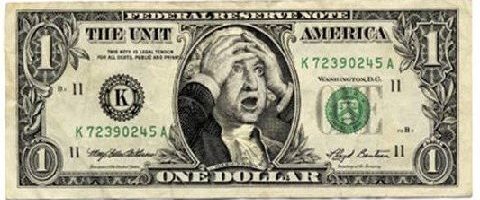 Although humanity has come to embrace it as a necessity, the monetary system is a game. It is not a bad game or a good game, but does have further reaching consequences than most games because the majority of players don’t realize it’s a game. The origins of the game have been woven throughout various cultures and generations as the game has been upgraded with complexities and higher stakes since it began, each generation finding more ways to incorporate the game into more and more facets of their lives.
Although humanity has come to embrace it as a necessity, the monetary system is a game. It is not a bad game or a good game, but does have further reaching consequences than most games because the majority of players don’t realize it’s a game. The origins of the game have been woven throughout various cultures and generations as the game has been upgraded with complexities and higher stakes since it began, each generation finding more ways to incorporate the game into more and more facets of their lives.
Like chess, football, freeze tag, or tiddlywinks, the game is filled with highs and lows, moments of glory and moments of defeat. There are particular rules of play in order to establish boundaries within which the game makes sense, and there are those who will sometimes stretch those boundaries to their own advantage, thereby making the game much less conducive toward happiness for the other players.
While success in this game can often facilitate happiness, the game itself is not mandatory for establishing happiness. Because the monetary game is based upon a competitive model with a loser for every winner, unfortunately, the game can also do as much to deter happiness as it can to facilitate it. Due to the extreme competitiveness and severity of some of the players, sometimes, even for the grandest winners, the game is just no fun at all.
 As with the more recent development of virtual computer games, the monetary game can be quite addictive, and players often get so consumed with the playing of the game that they neglect other areas of their lives that are far more important and far more conducive of happiness. The game is so insidiously enticing that many players will only participate in the other areas of their lives if they can play the game there as well. Like children playing hand-held video games at the dinner table or using yo-yos in the classroom, many people work the game into very inappropriate places, such as interpersonal relationships, spiritual practices, and community participation. Often denigrating the quality of these facets of life by limiting their inherent capacity for happiness to the confines of the game, the game is the least fun when people are forced to play due to the compulsive tendencies of the game’s greatest fanatics.
As with the more recent development of virtual computer games, the monetary game can be quite addictive, and players often get so consumed with the playing of the game that they neglect other areas of their lives that are far more important and far more conducive of happiness. The game is so insidiously enticing that many players will only participate in the other areas of their lives if they can play the game there as well. Like children playing hand-held video games at the dinner table or using yo-yos in the classroom, many people work the game into very inappropriate places, such as interpersonal relationships, spiritual practices, and community participation. Often denigrating the quality of these facets of life by limiting their inherent capacity for happiness to the confines of the game, the game is the least fun when people are forced to play due to the compulsive tendencies of the game’s greatest fanatics.
Nevertheless, as has been done throughout its evolution, the rules of the game are always subject to change. Thanks to certain shifts in consciousness throughout the populace, and due to the glaring fallibilities in the most recent incarnations of the game, many are realizing the game’s limitations and downright inconsequential nature when seen in the light of the more valuable and eternal facets of life. Because of the game-changing nature of an awakening populace, many are seeking to not only change the rules of the game to reflect the greater qualities of collaboration over the limiting antagonism of competition, but are also seeking to transcend the game altogether and return the course of civilization toward a more harmonious path with nature instead of continuing on with the artificial constraints imposed by this fabricated contest of commodity.
For those who wish to continue playing the game, yet wish to do so in a way that will cultivate a greater economics of happiness for all involved, the greatest challenge will come in overcoming those that have mastered the current incarnation of the game by writing the rules for it. Should this game be played in a manner whereby its results no longer detract from the well-being of those who do not wish to detract attention from the more important facets of life in order to play, the game may very well continue to serve a purpose in facilitating happiness for those who find joy in it. Yet if the game continues to create more losers than winners, unjustly subjecting moderate and amateur players to undue suffering and torment, there is the high probability that the game will reach its conclusion in deference to the more equanimous game of life.
Ultimately, the future of this game will rest upon the desired outcome of those who are most greatly involved in its play. Should the recognition of abundance beyond the limitations manufactured by the game prevail, those who are most adept at playing the game can steer its course to more greatly manufacture a tournament of winners and utilize the game to establish an often disregarded sense of fun in meeting the needs of the world. This monetary game, which has usurped our understanding of economics, does have the capacity for collaborative contentment, yet just as with the equanimity which comes with success in the game of life, the outcome will largely depend on how we want to play the game.



Pingback: [BLOCKED BY STBV] The Game Of Money - Steve McAllister • realestate.10ztalk.com